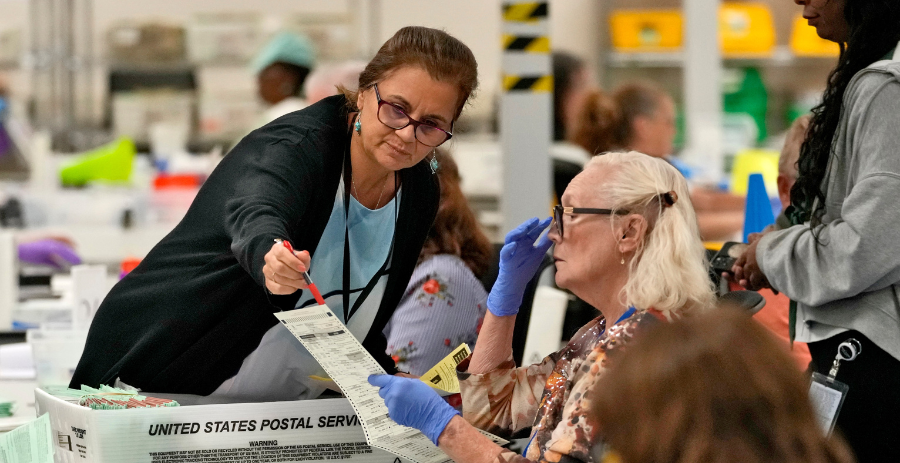courts
Feds Abandon Biden’s Fight Against Arizona Election Law

The Trump administration has officially withdrawn its challenge to an Arizona law mandating proof of citizenship for federal voting. Despite this development, the state cannot enforce the law yet.
This decision by the Department of Justice was anticipated, as the agency has been distancing itself from litigation initiated during the Biden administration aimed at protecting voter rights. Lawmakers supportive of the law celebrated the administration’s retreat.
Senate President Warren Petersen praised the DOJ’s action, describing it as “a major win for election integrity and the rule of law.” He attributed part of this development to his previous correspondence with the DOJ urging them to withdraw from the Biden lawsuit.
Nonetheless, Petersen acknowledged the battle is far from over, asserting that Republican House and Senate members would continue defending the 2022 law against ongoing challenges from special interest groups.
Elisabeth Frost, an attorney representing various organizations focused on voting rights, declared that they would continue fighting for Arizona voters, regardless of the DOJ’s stance.
The law’s implications are significant; around 50,000 Arizonans’ ability to vote in the upcoming presidential election hangs in the balance. A 2004 initiative requires proof of citizenship to register, conflicting with the National Voter Registration Act which allows a federally designed form for voting that includes a sworn statement of citizenship.
In response to Biden’s win in Arizona in 2020, Republican lawmakers and Governor Doug Ducey enacted a law stipulating that the federal form cannot be used for presidential elections unless accompanied by proof of citizenship. However, U.S. District Court Judge Susan Bolton deemed that requirement illegal and discriminatory.
Bolton also nullified provisions restricting mail-in voting for those using federal forms and mandated county recorders to check voters suspected of not being citizens. The case is still progressing through the courts, with the 9th Circuit Court of Appeals recently affirming Bolton’s conclusions and instructing her to consider lawmakers’ potential discriminatory intent.
Now, the DOJ has requested to withdraw from the case, indicating it no longer seeks to pursue its claims. The next steps for the ongoing litigation remain uncertain, particularly regarding whether the ruling will hinder state efforts to restrict “federal only” voters in future elections.
The appellate court’s directive to Bolton suggests that the evidence lawmakers relied upon is pivotal. The court noted that to date, the Legislature had not successfully substantiated claims of non-citizen voting.
A hearing date from Bolton is yet to be scheduled regarding the DOJ’s withdrawal and the court’s latest instructions. As the situation evolves, recent congressional actions add another layer of complexity; the U.S. House has approved the Safeguard American Voter Eligibility Act, which would also require proof of citizenship for federal elections.
While Republicans control the House, any progress toward enacting this measure faces potential obstacles, including a Democratic filibuster in the Senate.
















